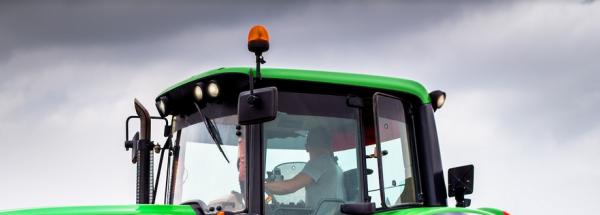Agriculture innovation in India: is it looking in the right direction?
Tradition is merging with information technology in indian agriculture. Is this happening in the most sustainable way, or going backwards?

Do digitized farmers see where they are headed?
</em></u>
I just read a very interesting report reposted from CIS-India, about how indian agriculture is being redefined through digital innovation and startups. There is a lot going on, but the impression I got by only reading that report is that it is all happening inside the same old script straight from Silicon Valley: there is a lot of disruption, startups, “platforms”, GDP growth, storytelling, “X-As-A-Service”, “Uber for X” and so on, in that report.
At the same time, with the exception of this one “entrepreneur tip” at the very end:
Increased promotion and adoption of open data are other trends to watch for. An open data ecosystem can grow India’s GDP by $22 billion by 2020, according to report by YES Bank and the Ministry of Electronics and Information Technology (MeitY). India’s Open Government Data (OGD) platform can step up to this challenge.
I find basically no mention, both in the report itself, and in the 5/6 random links I opened, of things like usage and development of Free/Open Source Software. Or Open Hardware, or open licenses for user manuals, educational resources and other documentation.
I did find, however, a worrying hint that even indian farmers may be forced, eventually, to get Ukrainian firmware to survive because even THEIR Right-To-Repair went down the drain:
"Farming as a Service" models are also "getting significant corporate backing, such as Trringo by Mahindra and Mahindra for tractor rentals and John Deere (with EM3 Agri Services) for harvester fleets".
Where is Openness in India’s agritech?
The first questions that popped to my mind while reading that single report are:
- what happens to farmers if the original provider of any of those products or services goes belly up? Are they left with something that they cannot use anymore, after just a few years?
- what happens to all the data and knowledge accumulated by by, or through those projects, when their founders abandon them for any reason? Are they lost for good, or fully and legally reusable?
- how are the same data and knowledge from all those projects actually shared and reused across the country, to maximize the benefits for all its farmers (and citizens, of course)?
- Does any of those services only change whith whom, and for what farmers find themselves in deep debt after a few years?
Summarizing: what is India doing to avoid the risks for farmers that I discussed in this post, and then in this one? And how much support there is for solutions to the same problems, but based on collaborative, bottom-up, Open Hardware-based methods (*)?
IMPORTANT: this post is not a critique of India (or anybody else) at all. It is a sincere question, and nothing more! I just wish to know because this is one of my fields of work. I am perfectly aware that no single article may give a complete picture of such a complex theme!
(*) also see these slides on the same general topic
Who writes this, why, and how to help
I am Marco Fioretti, tech writer and aspiring polymath doing human-digital research and popularization.
I do it because YOUR civil rights and the quality of YOUR life depend every year more on how software is used AROUND you.
To this end, I have already shared more than a million words on this blog, without any paywall or user tracking, and am sharing the next million through a newsletter, also without any paywall.
The more direct support I get, the more I can continue to inform for free parents, teachers, decision makers, and everybody else who should know more stuff like this. You can support me with paid subscriptions to my newsletter, donations via PayPal (mfioretti@nexaima.net) or LiberaPay, or in any of the other ways listed here.THANKS for your support!